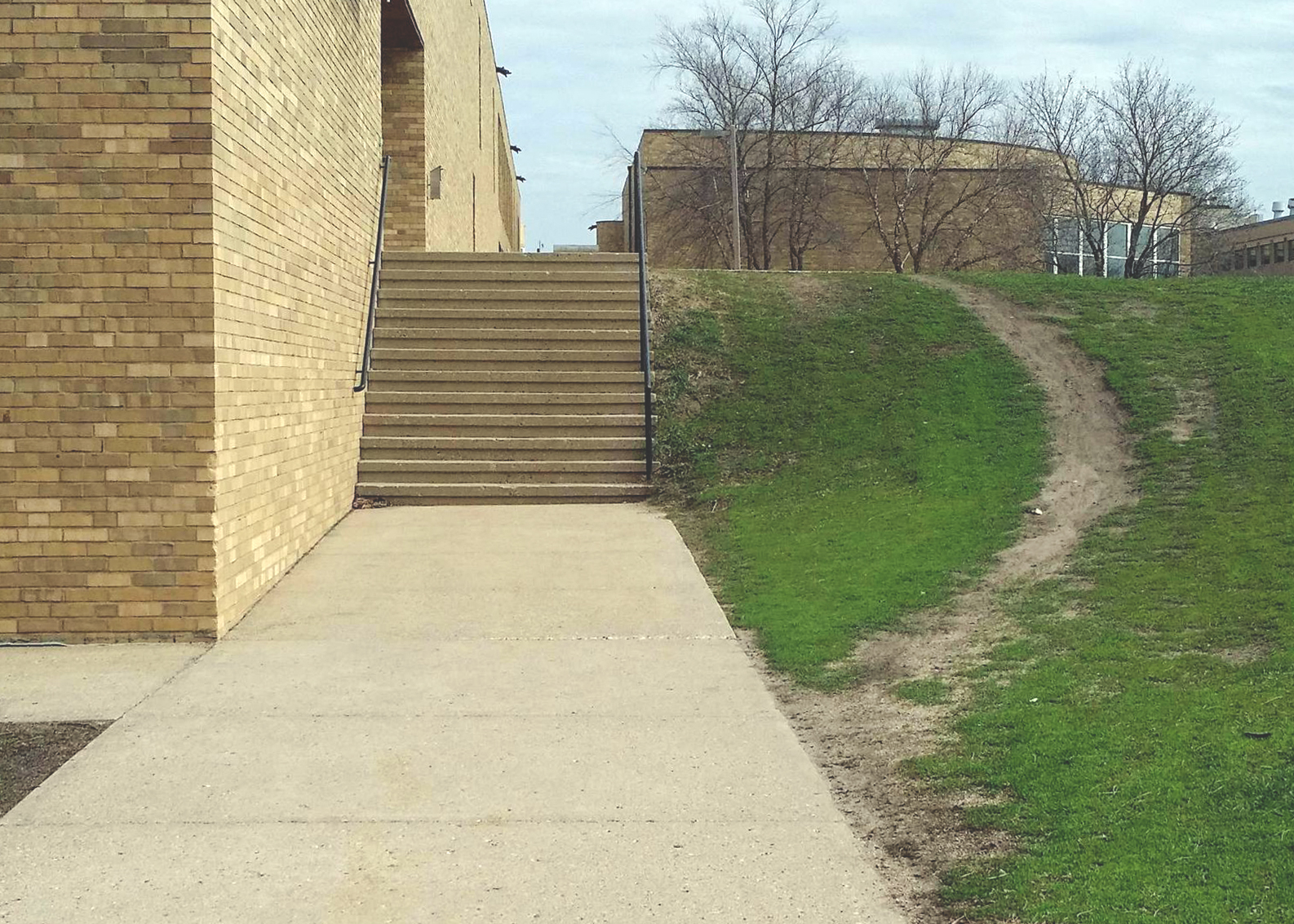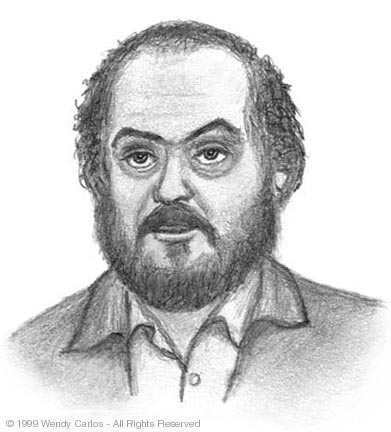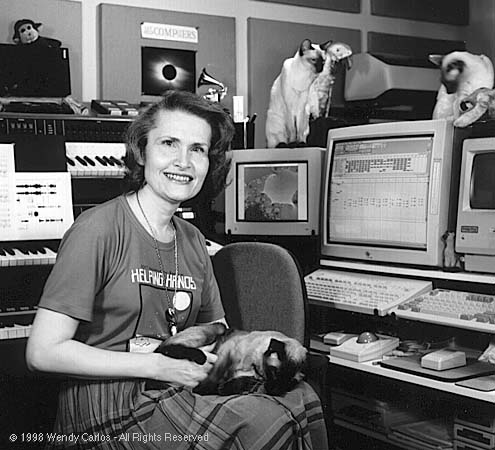Can we relinquish music and by default sound from the terrain it first negotiated? Can we split its referential abilities and find a new meaning and emotion within its landscape? and unjustly encountered is there space for it to grow apart from its own historical residue? Frances Scott and Chu-Li Shewring’s ‘Incantation, Wendy’ (2018) revokes sound’s complex necessity to stick to subject matter - it questions what happens when we remove sound from its previous memory and, like a ritual - grow it another form.

‘Incantation, Wendy’ is a back-catalogue edit of what could easily be considered one of the world’s greatest composers; Wendy Carlos. Scott and Shewring have worked closely to mine and lift up the fervent experimentations undertaken by Carlos into the hidden potential for sound especially during her collaborations with Robert Moog, a composer himself and inventor of the first commercial synthesizer, something which Carlos ostensibly oversaw the production and creation of.
From the very outset we hear the intoxicating sound of galloping horses - the audio grafting hard to slither away from us, resisting memory and association. The sound of one of nature’s most purest and recognisable forms quickly enters the realm of digital duplication a re-mastering technique which drifts throughout this complex audio biography.
The cinematic quality of Scott and Shewring’s editorial composition is overwhelming, only a die-hard Carlos fanatic would be able to determine where her samples complete and further sonic analysis commences. The effect renders you in a flux in which sound becomes as much a lie as it does the accurate depiction of true intention and identity. How this manifests is a feeling of being both followed whilst simultaneously stalking another. This converse form of representation acutely flatters the desire and experimentations of Carlos - an artist and technological auteur who spent her entire life searching for pure electronic replication.

Though featuring some of Carlos’ most famous songs and samples ‘Incantation, Wendy’ digs its claws under the predetermination afforded by her collaboration with Stanley Kubrick. The work of this investigation locates the listener in an all-together more nuanced space. The fundamental principle being that Carlos’ work beckons music to exist as a muddy desire line - it co-opts sounds original intention and works to imitate a pre-existing framework. The haunting shape-shifting edit of ‘Incantation’ (as I will continue to call it) illustrates this relationship by presenting sound as a dynamic space where memory is key as a way to latch the sonic to thought and feeling.

Mid-way through Scott and Shewring build a sonic dub relationship between their own field recordings and those already mastered by Carlos’ hugely undervalued Sonic Seasonings (1972) - an album of ambient tracks loosely reflecting the seasonsal change. Here we find a fascinating edit sampling Carlos’ own findings (a cat’s purr and a fire crackling) alongside that of Scott and Shewring’s own sonic investigations a rocking chair, footsteps on gravel and the disconcerting sound of a child reading ‘The Shining’. This creates one of the most prescient occurances in ‘Incantation’ returning us to the fundamental sonic backdrop of our own immediate environment a reminder to the viewer that our understanding of sound at its most purest - the sound we daily encounter - is still pending. That all further digital replications not only act as attempts to understand those interactions in a bid to further demonstrate the role of sound placed within a hierarchy - which often within Carlos’ own practice declassifies music.
We as such glide over the 1 hour 40 track and realise that a lot of what Carlos created has been frustrated by rote of its filmic soundtrack associations. ‘Incantation’ painstakingly works to unlatch the progression which Carlos made into how sound acts as an auteur of aural environments from the obvious connections attributed to it as a result of Kubrick’s somewhat rigid readings. By enabling Carlos’ back catalogue to wander freely as an audio track exclusively distanced from visuals ‘Incantation’ beckons light into the sonic landscape finding its home not in the horror of a post-industrial council estate wasteland or 1970’s interior design.


All original photographs of Wendy Carlos plus Stanley Kubrick artwork: www.wendycarlos.com
‘Incantation, Wendy’ (2018) is a recorded broadcast for radio by Frances Scott and Chu-Li Shewring. It was first commissioned by TACO! for RTM.FM. The piece forms part of Frances Scott's research residency at TACO! which will culminate in a new film. Frances Scott / Chu-Li Shewring.
